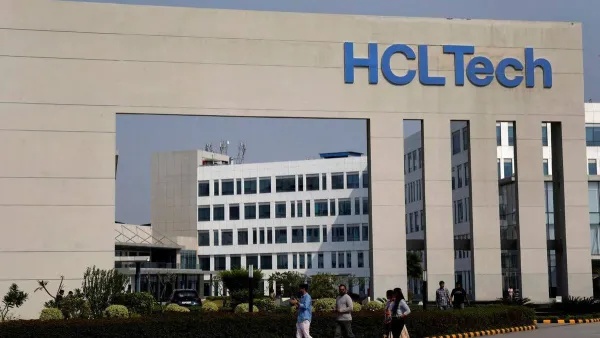HCL Tech's Q2 performance "ticked most boxes," according to the JM Financial note. The IT services major reported a robust 2.4 per cent quarter-on-quarter revenue growth in constant currency (cc), comfortably beating both JM Financial's estimate of 1.2 per cent and the consensus estimate of 1.5 per cent. The growth was driven by a strong showing in its core Services segment, which grew 2.5 per cent cc QoQ. EBIT margins for the quarter expanded to 17.4 per cent, which was also better than the 17.1 per cent projection.
A key highlight of the quarter was the strong deal momentum. HCL Tech secured net new deal wins worth $2.6 billion, a 16 per cent year-on-year increase. The company noted this was the first time it surpassed the $2.5 billion mark without the inclusion of any mega deals, indicating a more granular and broad-based booking performance. The company's management expressed confidence that its quarterly net new TCV run-rate can be stepped up to over $2.5 billion from the previous $2 billion.
For the first time, the company disclosed revenues from its Advanced AI services, which are clocking an impressive annual run rate of $400 million. JM Financial noted that HCL Tech is "leveraging its strengths in engineering, infrastructure and software to make good strides in Al-centred services". The brokerage believes this focus should help the company "navigate Al's deflationary impact better than peers".
Looking ahead, HCL Tech maintained its consolidated revenue growth guidance for FY26 at 3-5 per cent in constant currency. However, it raised the lower end of its guidance for the services segment to 4-5 per cent from the previous 3-5 per cent range. The EBIT margin guidance for the full year remains unchanged at 17-18 per cent. The company anticipates margin impacts from wage revisions in the upcoming third and fourth quarters.
JM Financial retained its 'ADD' rating but noted that a significant upmove in the stock since its last upgrade limits the immediate upside. The brokerage has made minimal changes to its FY26-27 earnings per share (EPS) estimates, as it expects factors like higher R&D investments and a changing business mix with lower software revenue to offset the margin beat seen in Q2.
